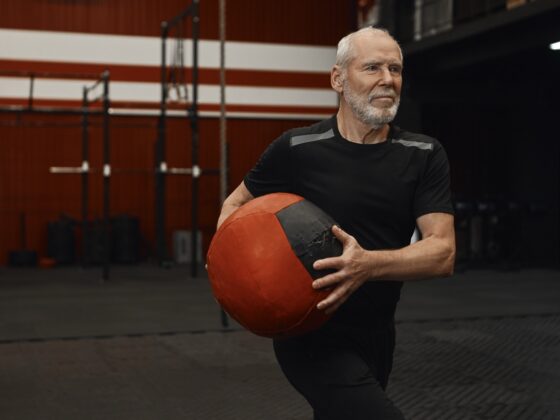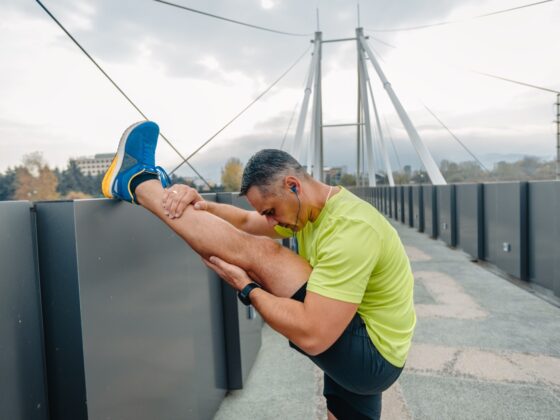And why longevity isn’t about luck—it’s about which internal systems you’re upgrading now.
Most people think health after 50 is a crapshoot—good genes, clean living, and a little luck.
But it’s not. Your long-term health isn’t a mystery. It’s a math equation. And it’s one you can influence—dramatically—if you know which systems to track, train, and optimize.
Here are the four systems that predict whether you’ll be thriving at 90—or managing prescriptions and side effects while Googling assisted living.
This one you’ve heard from me before—and for good reason.
Muscle is metabolic currency. It predicts insulin sensitivity, fall risk, mitochondrial function, cognitive decline, and even immune strength.
The more muscle you have, the more longevity insurance you carry.
- Lift heavy 3x/week minimum
- Hit protein targets (1g per pound of ideal body weight)
- Prioritize compound lifts, not isolation fluff
You don’t need to run marathons. But if you can’t climb stairs without breathing heavy, you’ve got a problem.
Cardiovascular health after 50 is about efficiency, not endurance.
- Add 2–3 sessions/week of Zone 2 cardio (conversational pace)
- Throw in HIIT or sprint intervals once weekly
- Monitor your resting heart rate and HRV—if they’re dropping, you’re winning
If your metabolism is trashed, everything else is just harder—fat loss, brain function, recovery, even mood.
This isn’t about weight. It’s about how efficiently your body converts fuel into energy.
If your metabolism is trashed, everything else is just harder—fat loss, brain function, recovery, even mood.
This isn’t about weight. It’s about how efficiently your body converts fuel into energy.
- Cut processed carbs and seed oils
- Use intermittent fasting and time-restricted eating wisely
- Train your mitochondria with low-intensity movement and cold exposure
- Prioritize sleep—it’s when your metabolism resets
Inflammation is the silent killer.
If you’re wired, fried, or emotionally numb, it doesn’t matter how jacked you are. Your nervous system is your operating system—and most people ignore it until it breaks.
- Get out of fight-or-flight: breathwork, sauna, meditation, nature
- Sleep more and scroll less
- Train hard, but recover harder—HRV and deep sleep should be sacred
- Keep learning—Novelty creates neuroplasticity & neuroplasticity keeps you young
The Bottom Line:
Your health is only as strong as your weakest system.
You don’t need to be perfect. But you do need to stop guessing.
Start testing. Start tracking. Start training each system with the precision it deserves.
The people who win in their 70s, 80s, and 90s? They didn’t get lucky. They got strategic.
So let me ask you—which of your four systems needs the most work right now?
You know what to do.








